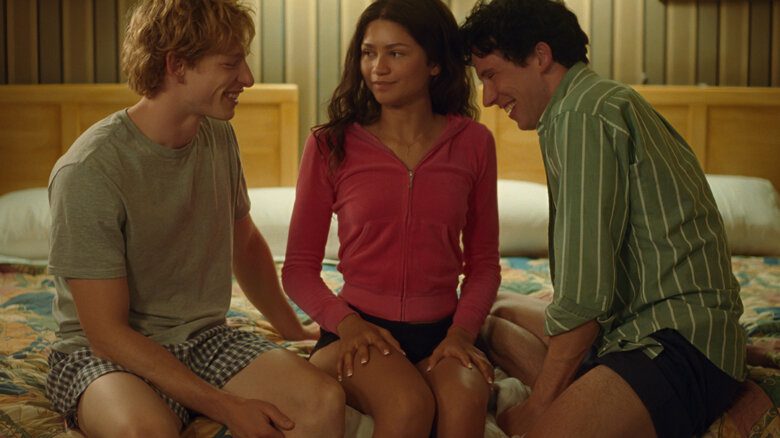As a child the most surefire way to make me cry involved an adult not turning the channel fast enough after the showcase showdown on The Price is Right so that I heard the first few notes of the theme song from The Young and the Restless. No matter how happy or excited I was by contestants winning cars or boats or trips around the world, as soon as I heard the first sad notes to the theme song, I’d start to cry deep dramatic sobs.
As with most little boys my age, I learned early on that crying could get you things that you wanted, but ultimately you had to pay a price for seeming weak. And if you were someone who cried not out of want, but out of feeling, then you were seen as weak and not very resourceful. Boys who cried were sucks and weaklings and wusses subjected to an onslaught of disdain and ridicule. I don’t remember my parents giving me too hard time for crying, but I do recall seeing it happen to other little boys around me and, especially, to the sons of sporty blue-collar workers. Weakness was a cologne we all learned to smell early on and avoid whenever possible.
With a few notable exceptions in my teens, including the death of my cat Ginger, watching the movie Beaches (I know, I know), and the death of a co-worker, I did a pretty good job of not crying in public. In retrospect, however, I’m not sure how I got to that place, and the timeline of my change from oversensitive child to a dried-eyed teen feels hazy at best. Did I wake up one day not needing to cry anymore or had external events frightened my tears away?
I became someone who didn’t mind crying again while watching the 2000 Sydney Olympics when Canada’s Simon Whitfield ran past a German during the final stretch to win the men’s triathlon. I felt a tightness and excitement build in my chest as he kicked past the other runner and when I realized he was going to win the gold, a stream of patriotic tears — and as cliché as that may sound, I don’t know how else to describe them — poured from my eyes. Just as the crying stopped without warning, it started again without warning too. And who would have guessed it would have taken a Canadian winning a triathlon gold?
After the Sydney games, I found myself crying at news reports, awards shows and at movies on a regular basis, not the dramatic tears of my youth, but single and minimal tears that could be wiped away easily with a sleeve. It even became a joke amongst my friends that I would always cry during the Academy Awards memorial sequence that showed all the famous people who died during the previous year. I couldn’t help but feel this was a result of my comfort with myself and my sexuality. I didn’t care if other people found my tears less than masculine as redefining my masculinity was an integral part of my coming out process. Crying felt natural.
This past summer, I experienced the most real tears of my life when my best friend passed away unexpectedly. I’d cry at songs on the radio, at food that reminded me of him, when I’d think of his chinchillas, when writing, when showering, even cry at the yellow napkins at Wendy’s that we used to argue about. I’d cry cry cry and then sometimes I’d laugh at myself and then cry again.
By the time the memorial service happened in Chilliwack, I felt like I couldn’t cry any longer (or so I thought) and that my tear ducts felt the same way as when you laugh so hard that your stomach aches. I’ve been to very few funerals in my life. I missed the first waves of AIDS deaths and while I heard stories of weekly funerals, I never experienced it first hand. I mention this as I’ve never been in a room with so many men crying at the same time. Perhaps straight guys cry at funerals too, but it just struck me as permissible in a way that it wouldn’t have had I been younger. All those guys that I’ve known for years and I had never once seen them cry. So much beauty and devastation. There’s no need to hide.
 Why you can trust Xtra
Why you can trust Xtra


